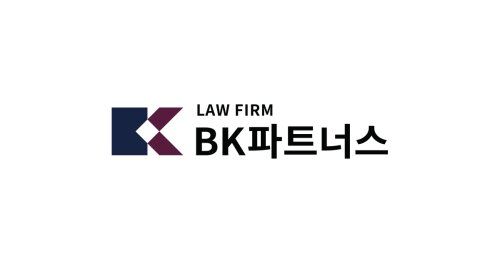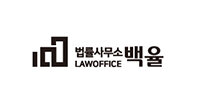Best Civil Rights Lawyers in Seo-gu
Share your needs with us, get contacted by law firms.
Free. Takes 2 min.
List of the best lawyers in Seo-gu, South Korea
About Civil Rights Law in Seo-gu, South Korea
Civil rights are fundamental protections that guarantee equal treatment and freedom for all individuals. In Seo-gu, South Korea, civil rights laws are designed to protect people from discrimination, ensure personal freedoms, and uphold human dignity. These laws are rooted in the Constitution of the Republic of Korea and are enforced both at the national and local levels. Civil rights in Seo-gu encompass areas such as equality before the law, protection from discrimination based on race, gender, religion, and disability, freedom of expression, freedom of assembly, and the right to privacy. Local authorities, together with national agencies, work to address civil rights violations and provide avenues for redress.
Why You May Need a Lawyer
Navigating civil rights issues can be complex, as these cases often involve challenging powerful institutions or addressing nuanced legal questions. You may require legal help in situations such as:
- Experiencing discrimination in the workplace, schools, or public institutions
- Facing unlawful arrest, police misconduct, or abuse of authority
- Struggling with harassment or unfair treatment due to gender, race, disability, or religion
- Encountering violations of freedom of speech or assembly
- Needing to file a complaint against government agencies or private entities for civil rights infringements
- Resolving issues related to immigration status or foreign residency rights
- Advocating for accessibility and inclusion for people with disabilities
A lawyer with experience in civil rights cases can help you understand your rights, gather evidence, represent you in negotiations or court proceedings, and ensure your voice is heard.
Local Laws Overview
Seo-gu adheres to the legal framework of South Korea, which includes protections under the Constitution, National Human Rights Commission Act, and Anti-Discrimination Act. Local governments in Seo-gu follow these national guidelines and may also implement ordinances to enhance civil rights protections at the district level. Key aspects relevant to civil rights include:
- Equal Treatment: Discrimination based on gender, age, disability, nationality, religion, or social status is prohibited by national law.
- Human Rights Complaints: The National Human Rights Commission of Korea investigates and resolves complaints regarding violations.
- Disability Rights: Local regulations promote accessibility and equal opportunity for people with disabilities, supported by the Welfare of Persons with Disabilities Act.
- Workplace Protections: The Labor Standard Act and related laws prevent unfair treatment and harassment at work.
- Freedom of Assembly and Expression: Protected under the Constitution, but subject to reasonable limitations for public order and safety.
Individuals in Seo-gu can file complaints locally through district offices, or seek assistance from national agencies if their rights are infringed.
Frequently Asked Questions
What are my basic civil rights in Seo-gu, South Korea?
You have the right to equality, freedom from discrimination, freedom of speech, assembly, religion, and privacy. These rights are protected under the Constitution and relevant national laws.
How do I report a civil rights violation?
You can file a complaint with the National Human Rights Commission of Korea, your local district office in Seo-gu, or seek help from legal aid organizations. Keep a record of all related details and evidence.
Can I be discriminated against at work in Seo-gu?
Discrimination in employment based on gender, age, disability, or other protected grounds is illegal. If you experience this, you should seek legal advice or contact the labor office.
What protections are in place for people with disabilities?
National and local laws require reasonable accommodations and prohibit discrimination against people with disabilities. Accessibility in public facilities and services is also mandated.
Are there laws protecting freedom of speech in Seo-gu?
Yes, the Constitution of Korea guarantees freedom of speech. However, certain limitations exist regarding hate speech, defamation, and national security considerations.
What should I do if I encounter police misconduct?
You can report police misconduct to the Police Administration, the National Human Rights Commission, or seek legal counsel to ensure a thorough investigation.
Is it possible to sue public authorities for civil rights violations?
Yes, you may initiate legal action against public officials or agencies if your civil rights are violated. Consulting a lawyer is highly recommended to navigate the process.
How are civil rights cases typically resolved?
Many cases are resolved through mediation, negotiated settlements, or administrative remedies. Severe cases or unresolved complaints may proceed to court.
What legal aid is available for civil rights issues?
Free or subsidized legal aid may be provided by government legal aid centers, nonprofit organizations, or the Korean Bar Association, especially if you qualify based on income.
Can foreigners access civil rights protections in Seo-gu?
Yes, foreign nationals are also protected under South Korean civil rights laws and can file complaints if they experience discrimination or rights violations.
Additional Resources
- National Human Rights Commission of Korea: Investigates complaints and promotes awareness about civil rights.
- Seo-gu District Office: Provides information on local ordinances and avenues for filing complaints.
- Korea Legal Aid Corporation: Offers legal assistance for those unable to afford private legal services.
- Ministry of Justice: Oversees the enforcement of anti-discrimination and civil rights laws.
- Korean Bar Association: Can connect you with experienced civil rights lawyers in Seo-gu.
Next Steps
If you believe your civil rights have been violated in Seo-gu, start by documenting the incident with detailed notes and evidence. Reach out to local authorities, the National Human Rights Commission, or a legal aid organization for guidance. Consider consulting a lawyer who specializes in civil rights for advice tailored to your situation. Acting promptly can improve your chances of a positive resolution and help protect your rights.
Lawzana helps you find the best lawyers and law firms in Seo-gu through a curated and pre-screened list of qualified legal professionals. Our platform offers rankings and detailed profiles of attorneys and law firms, allowing you to compare based on practice areas, including Civil Rights, experience, and client feedback.
Each profile includes a description of the firm's areas of practice, client reviews, team members and partners, year of establishment, spoken languages, office locations, contact information, social media presence, and any published articles or resources. Most firms on our platform speak English and are experienced in both local and international legal matters.
Get a quote from top-rated law firms in Seo-gu, South Korea — quickly, securely, and without unnecessary hassle.
Disclaimer:
The information provided on this page is for general informational purposes only and does not constitute legal advice. While we strive to ensure the accuracy and relevance of the content, legal information may change over time, and interpretations of the law can vary. You should always consult with a qualified legal professional for advice specific to your situation.
We disclaim all liability for actions taken or not taken based on the content of this page. If you believe any information is incorrect or outdated, please contact us, and we will review and update it where appropriate.









